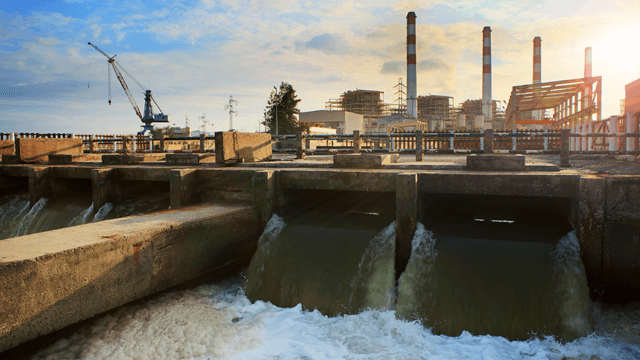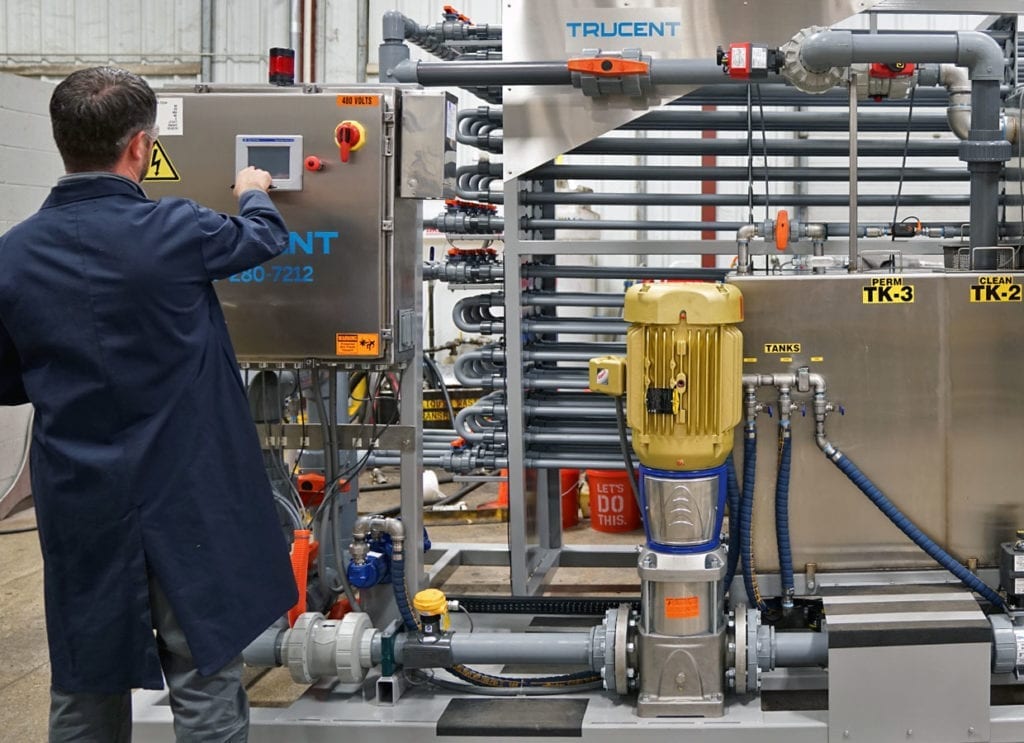Industrial Waste Water Treatment-- Shield the Setting with Specialist Water Treatment Providers
Industrial Waste Water Treatment-- Shield the Setting with Specialist Water Treatment Providers
Blog Article
Developments and Advances in Hazardous Waste Water Treatment Technologies
The landscape of commercial wastewater therapy is undertaking a transformative change, driven by technologies that boost both performance and sustainability. As regulatory standards evolve, the integration of AI and maker learning right into wastewater monitoring systems guarantees to improve procedures and ensure conformity.
Review of Drainage Therapy Technologies
Wastewater treatment technologies encompass a range of methods made to get rid of impurities from industrial effluents before their launch right into the atmosphere. These technologies are crucial for maintaining ecological equilibrium and making sure compliance with environmental laws. The main categories of wastewater therapy consist of physical, chemical, and biological approaches, each offering distinct objectives based on the nature of the contaminants existing.

Organic treatment methods utilize microbes to degrade organic matter, making them specifically reliable for organic-rich effluents. Techniques like activated sludge and biofilm reactors harness the all-natural destruction capacities of bacteria, resulting in considerable decreases in biochemical oxygen need (FIGURE)
Advanced Purification Strategies
Advanced filtration techniques represent a vital development in the world of commercial wastewater therapy, boosting the performance of impurity elimination procedures. Industrial Waste Water Treatment. These approaches incorporate a series of modern technologies, consisting of microfiltration, ultrafiltration, nanofiltration, and turn around osmosis, which supply consecutive obstacles for different bit sizes and chemical structures
Microfiltration and ultrafiltration utilize membrane systems to remove put on hold solids, microorganisms, and bigger natural molecules, enhancing the high quality of effluent prior to further therapy. Nanofiltration links the void in between ultrafiltration and reverse osmosis, efficiently removing natural compounds and divalent ions, thus reducing the lots on downstream procedures.
Reverse osmosis uses the highest degree of filtration by enabling only water and small particles to pass with its semi-permeable membranes, making it ideal for redeeming high-grade water from commercial effluents. Recent advancements in membrane layer innovation, including the growth of more durable and fouling-resistant materials, have dramatically enhanced functional effectiveness and decreased prices.
Integrating these advanced filtering methods not only improves the general therapy process but likewise adds to sustainability initiatives by enabling water reuse and source recovery in commercial settings. (Industrial Waste Water Treatment)
Organic Therapy Advancements

Moreover, the advancement of crafted organic systems, such as membrane bioreactors (MBRs), combines organic treatment with advanced membrane layer filtration. This assimilation enables for higher effluent top quality and decreased impact, making it appropriate for space-constrained industrial centers. Innovations in genetically crafted microorganisms have actually likewise arised, enhancing the biodegradation of details pollutants, such as drugs and heavy steels, that are typically testing to eliminate.
In addition, the application of bioaugmentation approaches, where useful microbes are introduced to boost the existing biological therapy procedures, has revealed encouraging lead to boosting treatment performance. These technologies collectively symbolize a fad towards even more lasting and efficient organic treatment methods that can adjust to the evolving complexities of commercial wastewater streams. As sectors remain to prioritize ecological conformity, these organic developments will play an essential see this role in wastewater management.

Source Recovery Approaches
In industrial setups, the combination of resource recuperation methods has actually ended up being increasingly essential for improving sustainability and decreasing waste. These techniques concentrate on removing valuable products and energy from wastewater streams, therefore transforming possible pollutants right into reusable sources.
One prominent technique is nutrient healing, where nitrogen and phosphorus, frequently existing in excess in wastewater, are caught and exchanged plant foods. This not just decreases ecological impacts however additionally provides a round economy option look at this site for farming applications. Additionally, innovations such as anaerobic food digestion permit the conversion of organic waste right into biogas, a renewable resource resource that can counter nonrenewable fuel source use in commercial procedures.
Furthermore, advanced filtering and membrane layer technologies help with the healing of commercial byproducts such as salts and metals. These recuperated products can be rehabilitated right into production processes, decreasing the requirement for virgin sources.
Future Fads in Drainage Management
As industries increasingly prioritize sustainability, the future of wastewater administration is readied to go through substantial makeovers. Technical advancements, such as expert system and device understanding, will certainly make read here it possible for extra efficient monitoring and management of wastewater systems. These technologies can predict maintenance needs, optimize therapy procedures, and boost decision-making, inevitably lowering functional expenses and ecological effect.
Furthermore, the integration of circular economy concepts will certainly play a critical duty in wastewater administration. Industries are expected to shift in the direction of systems that not just treat wastewater but also recoup beneficial sources, such as nutrients, water, and energy. This transition will certainly lessen waste and promote the reuse of materials, straightening with worldwide sustainability goals.
Arising therapy methods, such as membrane bioreactors and progressed oxidation processes, will better improve the effectiveness of wastewater therapy, enabling higher top quality effluents appropriate for reuse. Additionally, regulatory structures are likely to advance, highlighting stricter criteria for wastewater discharge and encouraging sectors to embrace innovative therapy solutions.
Final Thought
In final thought, the development of commercial wastewater therapy technologies demonstrates a substantial change towards improved effectiveness and sustainability (Industrial Waste Water Treatment). Technologies in advanced filtering methods, organic therapies, and source recovery methods highlight the market's commitment to environmental stewardship.
The landscape of commercial wastewater therapy is undertaking a transformative change, driven by technologies that enhance both efficiency and sustainability.Wastewater treatment innovations include a variety of approaches made to get rid of impurities from commercial effluents prior to their launch right into the setting.Harnessing the power of biological procedures has actually led to significant innovations in the treatment of industrial wastewater.In addition, the execution of bioaugmentation strategies, where advantageous microbes are introduced to enhance the existing biological treatment procedures, has actually shown encouraging outcomes in boosting therapy efficiency. These technologies jointly indicate a fad in the direction of more reliable and sustainable biological treatment methodologies that can adjust to the advancing intricacies of industrial wastewater streams.
Report this page